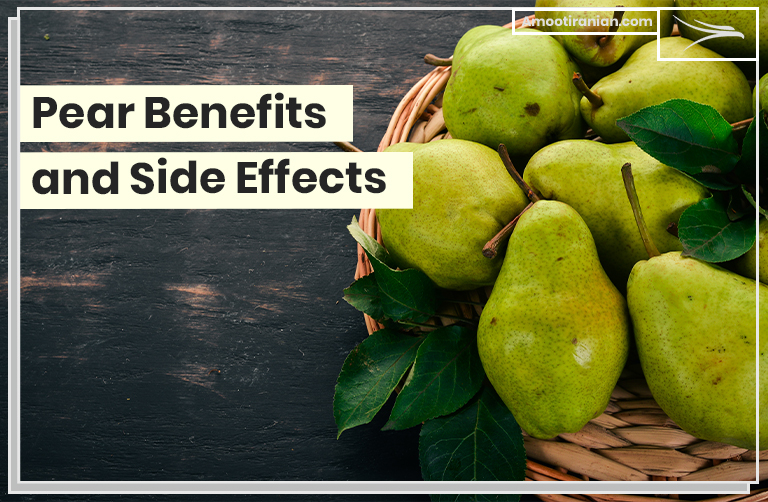.
What are the benefits of pear fruit?
.

.
Is pear the healthiest fruit? Some top pear benefits are mentioned below.
.
Rich in vitamins and minerals
Pears contain vitamins C and K, as well as potassium, copper, and fiber.
.
Promote digestive health
Pears are high in fiber, which helps regulate digestion and prevent constipation.
.
Boost heart health
Pears are low in fat and sodium, and high in potassium, which can help lower blood pressure and reduce the risk of heart disease.
.
Antioxidant properties
Pears contain antioxidants that protect against cellular damage and may reduce the risk of chronic diseases.
.
Low in calories
Pears are low in calories, making them a good option for those watching their weight.
.
Good for skin and hair
The vitamins and minerals found in pears can benefit skin and hair health, improving appearance and promoting overall well-being.
.
Versatile ingredient
Pears can be eaten raw, cooked, baked, or pureed, making them a versatile ingredient in a variety of dishes.
.
Boosts energy
Pears contain natural sugars that provide a quick burst of energy to help get through the day.
.
Supports immune system
The high levels of vitamin C in pears help support the immune system, helping to prevent illness.
.
Good for the brain
The potassium in pears has been linked to improved brain function and cognitive performance.
.
Promotes hydration
Pears are high in water content, making them a good option for staying hydrated, especially during hot weather or after physical activity.
.
Aids weight loss
The high fiber content in pears helps to regulate appetite, making you feel full for longer, which can aid in weight loss efforts.
.
What Are the side effects of pear?
.
Allergic reactions
Some individuals may be allergic to pears and experience symptoms such as itching, hives, and difficulty breathing. However it is rare.
.
Digestive issues
Eating large amounts of pears may cause digestive issues such as bloating, gas, and diarrhea.
.
Interactions with medications
Pears may interact with certain medications, including blood-thinning drugs, so it is important to speak with a doctor before consuming large amounts.
.
Fructose intolerance
Some individuals with fructose intolerance may experience symptoms such as abdominal pain, bloating, and diarrhea after eating pears.
.
Weight gain
Although pears are low in calories, consuming large amounts may still lead to weight gain if not part of a balanced diet. You need to consult with your doctor about the exact amount of pears that you want to eat.
